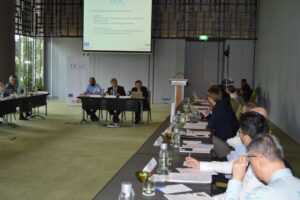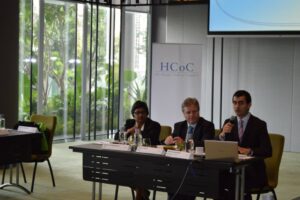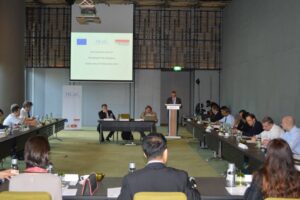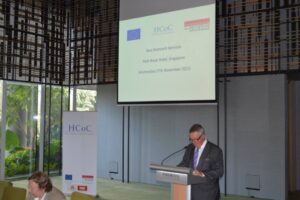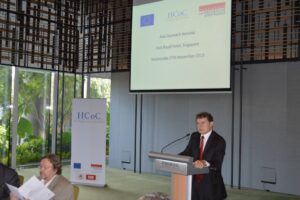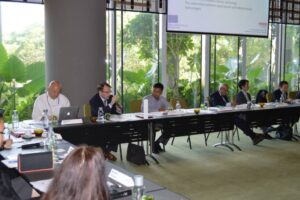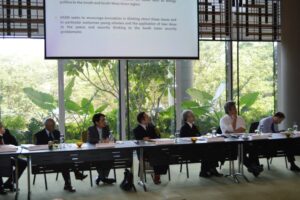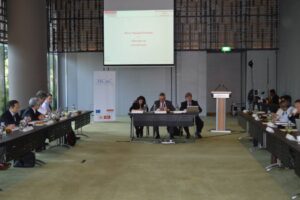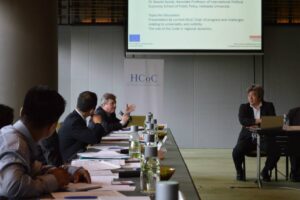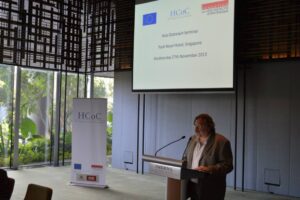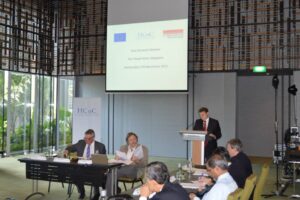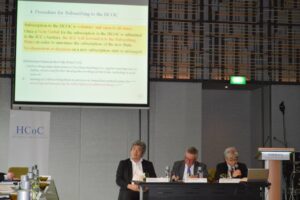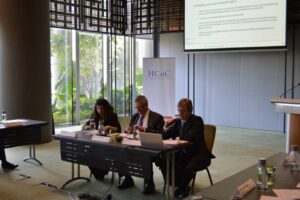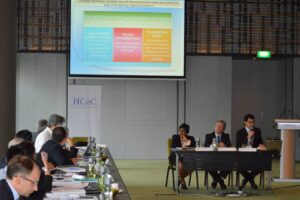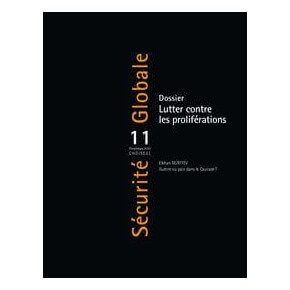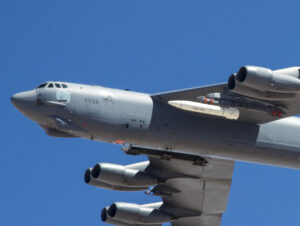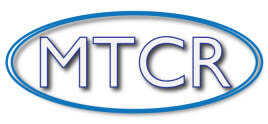Asia outreach seminar on HCoC
27 November 2013
On 27 November 2013, the FRS organised, on behalf of the European Union, a regional outreach seminar to raise awareness of ballistic missile proliferation and encourage discussions on perspectives to better address the ballistic missile proliferation threat at a regional level. This event was held at the Park Royal Hotel in Singapore.
AGENDA
WELCOMING REMARKS
- Dr. Jean-François DAGUZAN, Deputy Director, Foundation for Strategic Research
- H.E. Dr. Michael PULCH, Head of Delegation, Delegation of the E.U. to Singapore
- Richard BITZINGER, Senior Fellow, S. Rajaratnam School of International Studies
ROUND TABLE I: ASSESSING THE CURRENT & FUTURE TECHNOLOGICAL TRENDS IN BALLISTIC-MISSILE PROLIFERATION IN ASIA
- Asra HASSAN, Research Fellow, South Asian Strategic Stability Institute
- Dr. Xavier PASCO, Senior Research Fellow, Foundation for Strategic Research (FRS)
KEY ISSUES:
- Developments in ballistic-missile technology
- The relationship between space-launch and ballistic-missile technologies
ROUND TABLE II: REGIONAL PROLIFERATION ISSUES
- Animesh ROUL, Executive Director, Society for the Study of Peace and Conflict
- Dr. Kim Kyoung SOO, Professor, Myongji University
KEY ISSUES:
- The current regional state of play in the ballistic-missile field
- Issues and challenges arising from this context
ROUND TABLE III: THE HCoC AGAINST THE PROLIFERATION OF BALLISTIC MISSILES: UNIVERSALITY & VISIBILITY
- Zentaro NAGANUMA, Director for Export Control Cooperation, Disarmament, Non-Proliferation and Science Department, Japanese Ministry of Foreign Affairs
- Dr. Kazuto SUZUKI, Professor of International Political Economy, School of Public Policy, Hokkaido University
KEY ISSUES:
- Presentation by current HCoC Chair of progress and challenges relating to universality and visibility
- The role of the Code in regional dynamics
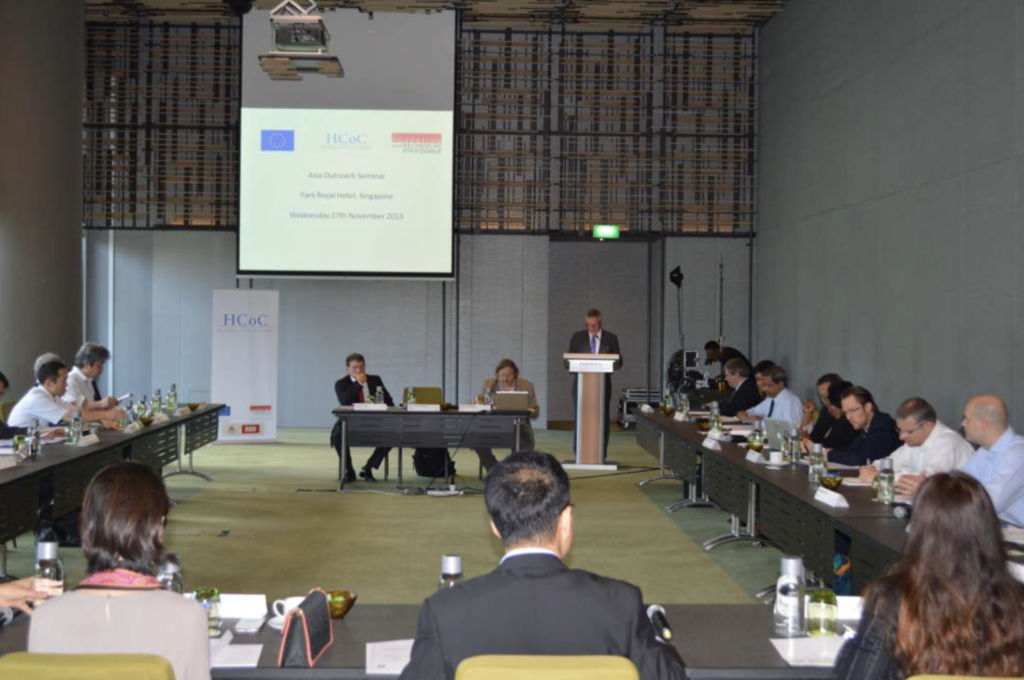
ROUND TABLE IV: SUCCESSFULLY IMPLEMENTING THE HCoC
- Jérémie HAMMEDI, Missile and Space Issues Expert, European External Action Service (EEAS)
- Dr. Rajeswari RAJAGOPALAN, Senior Fellow, Observer Research Foundation
KEY ISSUES:
- The EU Strategy to combat the proliferation of WMD delivery systems
- Discussion of the Lahore Agreement and how such a measure might be adapted/brought into line with HCoC
- Possible means of improving and developing the Code
CONCLUDING REMARKS
- Dr. Xavier PASCO, Senior Research Fellow, Foundation for Strategic Research (FRS)
